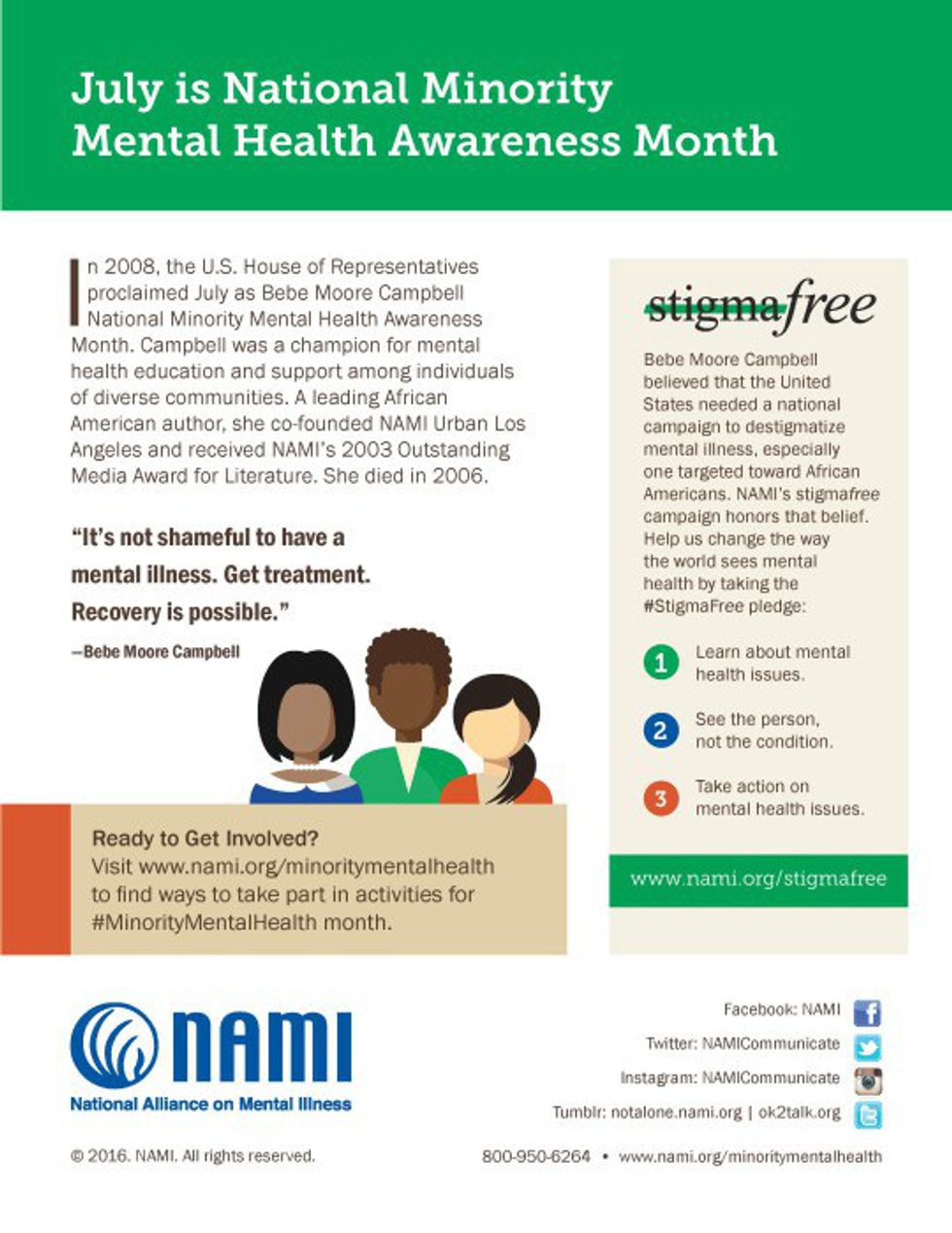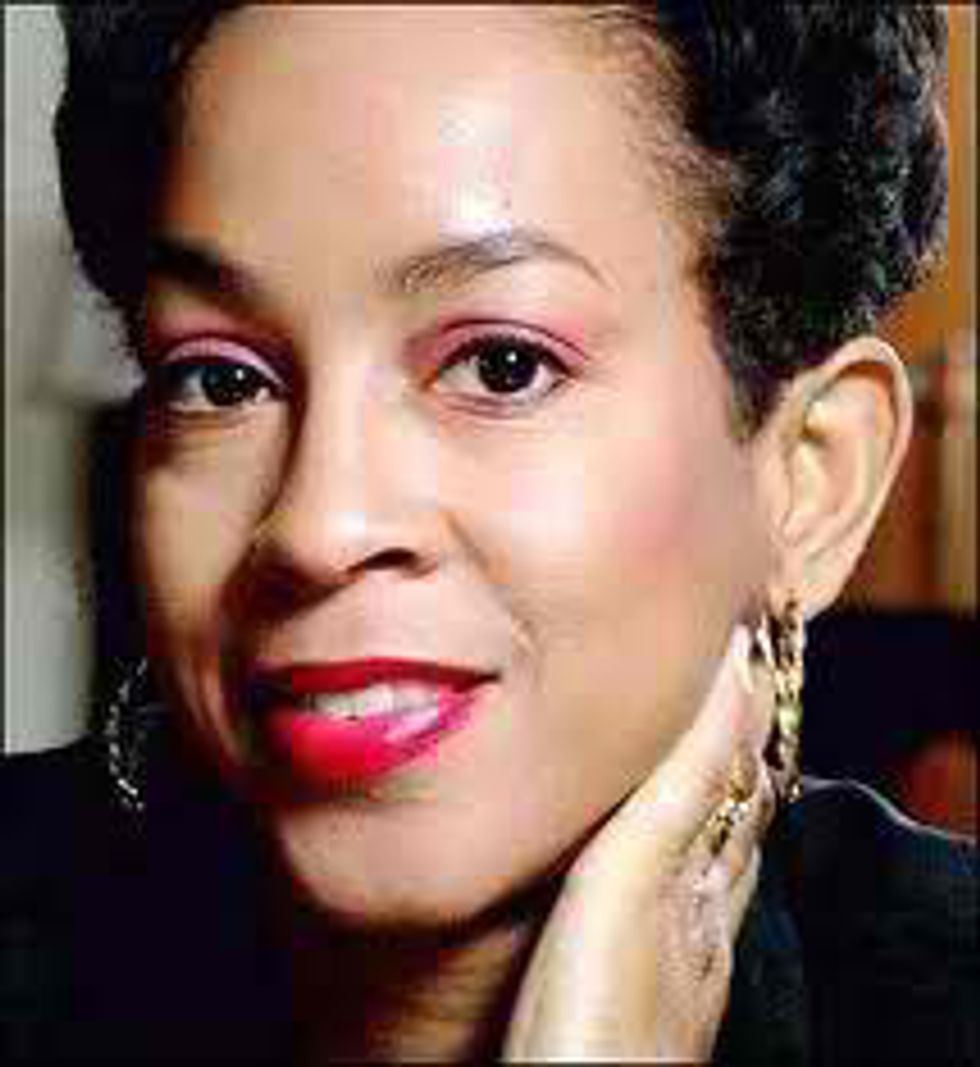Mental illness doesn't discriminate by race, ethnicity, gender or sexuality.
Mental illnesses are not a "white people thing" and do not solely afflict the rich, the privileged, the poor or any one community.
Officiated in May of 2008 by the U.S. House of Representatives, the National Alliance on Mental Illness (NAMI) has designated July as Bebe Moore Campbell National Minority Mental Health Awareness Month; named in honor of African-American author, advocate and co-founder of the urban Los Angeles NAMI chapter, Bebe Moore Campbell. Campbell also received NAMI's Outstanding Media Literature Award in 2003.
Unfortunately, Campbell passed away in 2008 at the age of 56 due to brain cancer, but during her lifetime she was a fierce advocate for increased support in diverse communities and increased mental health education.
NAMI states that the primary goal is to not only promote awareness of the prevalence of mental illness in minority communities but also improve access to treatment and services for those afflicted. NAMI has created numerous flyers and info-graphics relaying relevant statistics, as well as an explanation behind the dedication to Campbell. Both she and her friend, Linda Wharton-Boyd first conceptualized the idea of making July National Minority Mental Health Awareness Month, and after Campbell became too sick to continue the undertaking. Wharton-Byrd and others continued the effort in her honor.
These are just a few important facts and statistics about minorities and mental illness:
- Communities of color are less likely to receive mental health treatment. Besides how difficult it can be to receive insurance coverage for mental health services, institutional racism has also been theorized to play a role in the lack of or poorer quality of treatment available for minorities.
- LGBTQ individuals are twice as likely to live with a mental health condition than heterosexual individuals, and are 2-3x more likely to attempt suicide.
- 11% of transgender individuals report being denied health care by clinics due to discrimination/bias.
- 64% of suicide cases among Native Americans occur in males age 15-24.
- Fewer than 1 in 11 Latinos suffering from mental illness contact mental health care specialists for treatment.
Lastly, stigma is a huge barrier that prevents people of color from receiving and seeking mental health treatment. The use of the hashtag #Stigmafree on social media platforms like Twitter is encouraged to support increased mental illness education, as well as support the message of seeing individuals for who they are and not just as their illness.
Fight the stigma, take action and spread the word.
"It's not shameful to have a mental illness. Get treatment. Recovery is possible."
- Bebe Moore Campbell












































